Recent News
End-to-End names charities to benefit from 2023 eventSaturday, February 18, 2023
Five charities will benefit from money raised at this year’s Convex End-to-End, it was announced today.
Funds raised will go to the Bermuda Zoological Society’s Microforest Project, Gina Spence Productions, the Eliza DoLittle Society, the Skills Development Programme and Vision Bermuda.
Juvenile Seal Rescued From Clearwater Beach
Saturday, February 18, 2023
A seal was seen at Clearwater Beach today [Feb 18] and it returned to the ocean before BAMZ staff could arrive to provide assistance, and they noted that a “seal in Bermuda is in distress” so have advised that anyone sees the seal please keep your distance and contact the BAMZ Animal hotline at 293-2727.
BZS Lionfish Chowder Competition
Saturday, February 18, 2023
The Bermuda Zoological Society [BZS] held an Eat’Um to Beat’Um Lionfish Chowder Competition event this afternoon [Feb 18] at the Bermuda Aquarium, Museum & Zoo [BAMZ], with crowds of people coming out to taste the various chowders.
Micro forests take root across the island
Thursday, January 19, 2023
An effort to establish a series of “micro forests” across the island has established ten thriving plots, according to the Bermuda Zoological Society.
Successful First Year of Micro Forest Project
Thursday, January 19, 2023
The Bermuda Zoological Society [BZS] has highlighted the BZS Micro Forest Project, which has an aim to plant 1,500 native-compatible and endemic plants each year for three years.
About
GovernanceAbout Us
Newsletter
Latest News
Gift & Bookstore
Contact
General Inquiries
info@bzs.bm
Latest News
All the latest updates and news from the Bermuda Aquarium, Museum, and Zoo, one of Bermuda's leading visitor attractions!
Excerpt from WILD News April 2018
When new fish arrive at BAMZ, they must first undergo a minimum of 30 days quarantine in order to diagnose any marine parasites which, if left untreated, can infect the other inhabitants of the aquarium hall tanks.
On Thursday, 22nd March, Patrick Talbot, Curator of the Bermuda Aquarium, Museum and Zoo, with the assistance of Marine Collector, Jorge Sanchez, conducted the examination of the quarantined blue parrotfish, queen parrotfish, and rainbow parrotfish before their transfer into the display tanks.
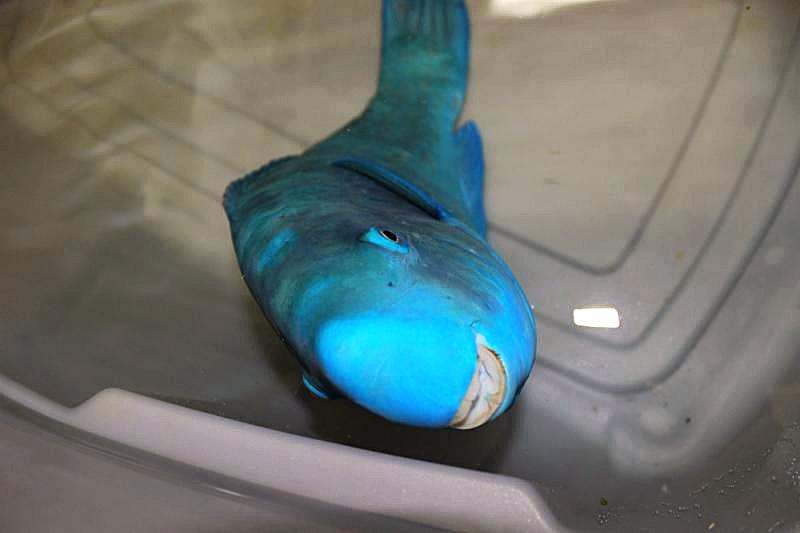
Blue parrotfish going under anesthetic
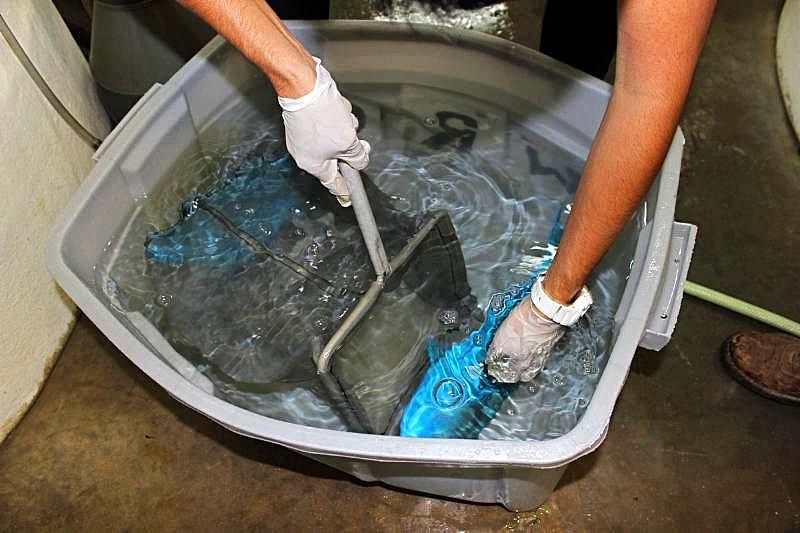
Blue parrotfish being removed from anesthetic
Before each fish was examined, they were first anesthetized in a solution rendering them unconscious and insensible to any pain. The length of time it took for each fish to go to sleep, was also the approximate amount of time it would remain sedated, giving Mr. Talbot an idea of how much time he had to take samples from the fish.
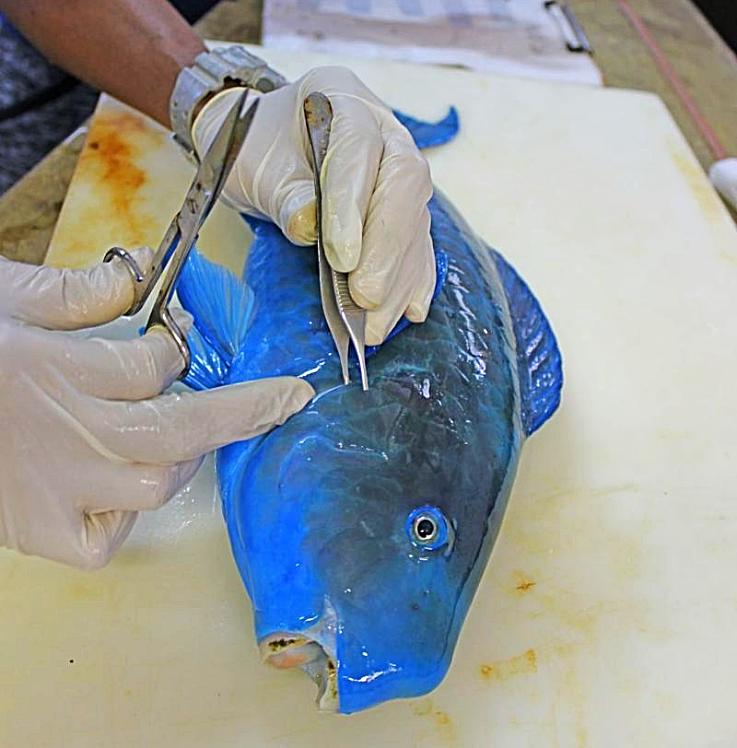
Blue parrotfish having its gills clipped
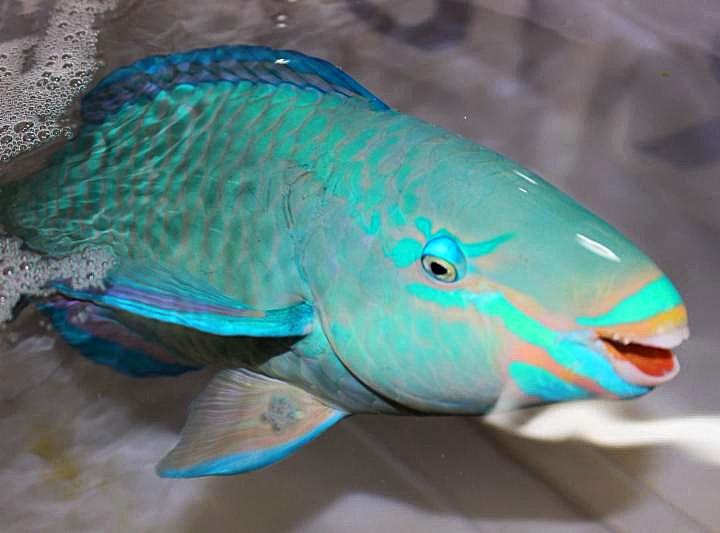
Queen parrotfish going under anesthetic
Each fish went through the same procedure; after sedation, they were removed from the water and placed on a cushion wrapped in plastic. Mr. Talbot quickly took a scale scrape, and a gill clipping - basically taking a sample of the skin mucous covering the scales and a tiny gill biopsy. The fish was then placed in a tub of fresh water, and Mr. Sanchez bubbled oxygen in the water surrounding the gills. The fresh water acted as final medication of sorts, as it would kill most external parasites (should there be any) and the bubbled gas helped ensure the fish had oxygen during its recovery from the anesthetic. After a few minutes, the animal was responsive and returned to a separate tank to await results of the procedure.
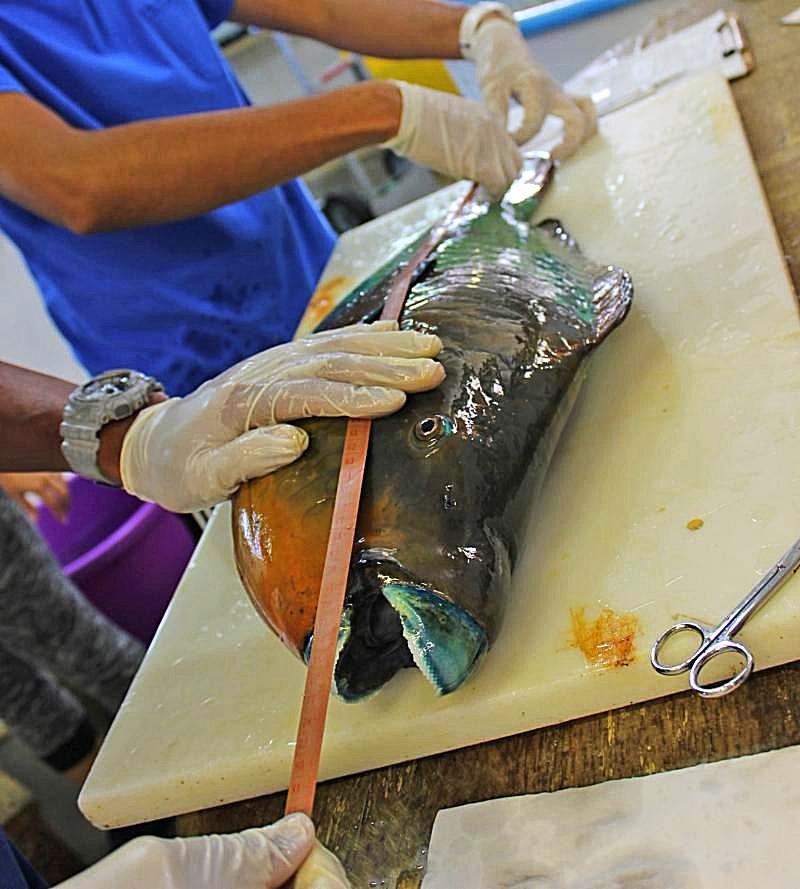
Rainbow parrotfish being measured
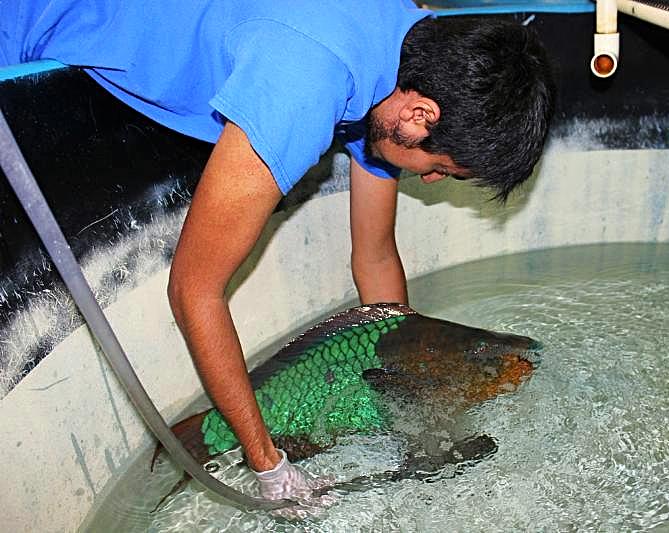
Mr. Sanchez running oxygen over the Rainbow parrotfish gills to aid in its recovery from the anesthetic
Once all the fish were sampled, Mr. Talbot took the scale scrapings and the gill clippings into the laboratory to be examined under a microscope for parasites infections, such as protozoa. If a parasite was found on either sample, the fish would have to go through another two weeks of quarantine and further treatment.
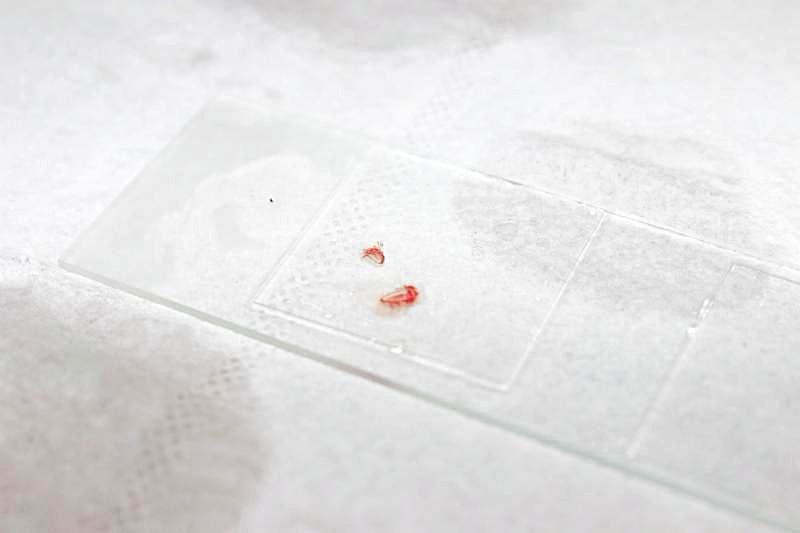
Gill clippings on a slide ready to be examined under a microscope
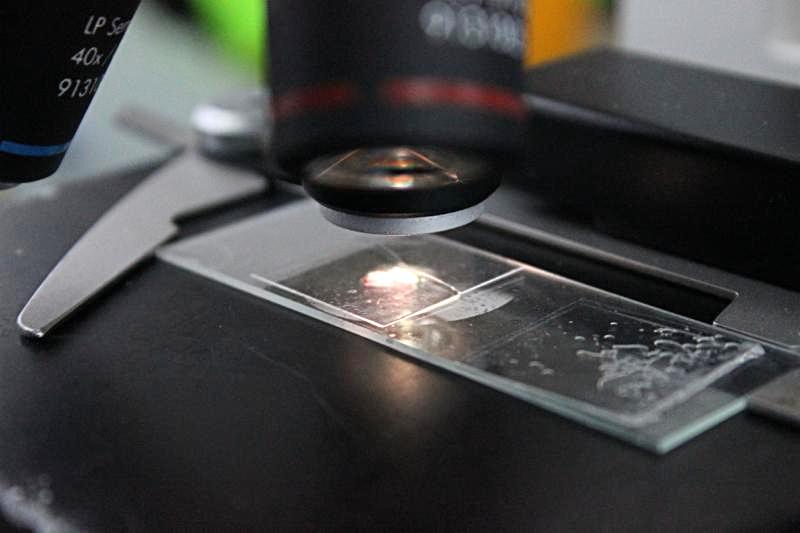
Gill clippings being examined
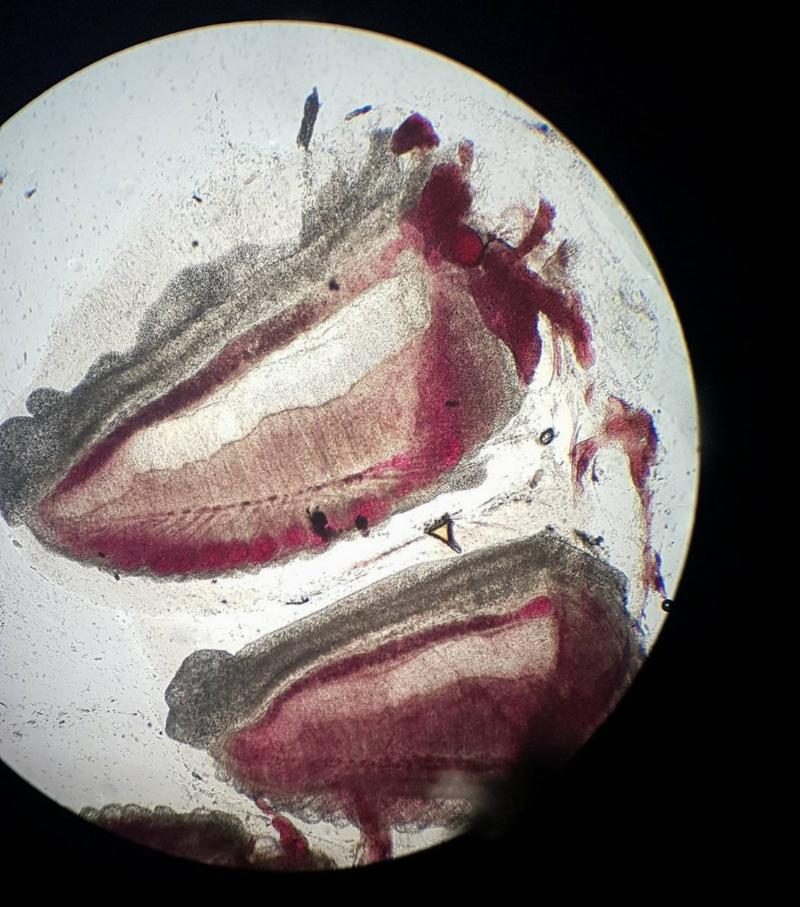
400x magnification of gill clippings
Thankfully, upon completion of the examination, all three fish were parasite free and received a clean bill of health. The queen and blue parrotfish were placed in the parrotfish habitat in the Aquarium Hall, and the rainbow parrotfish was placed in the North Rock habitat.
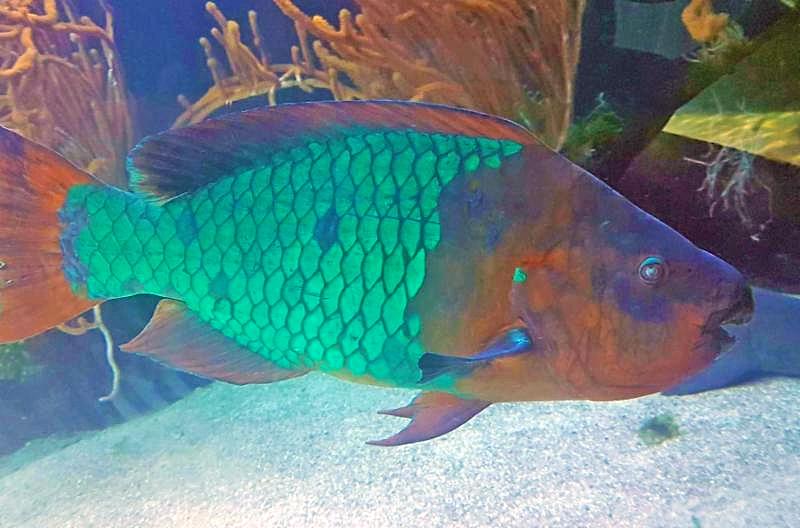
Rainbow parrotfish in the North Rock habitat
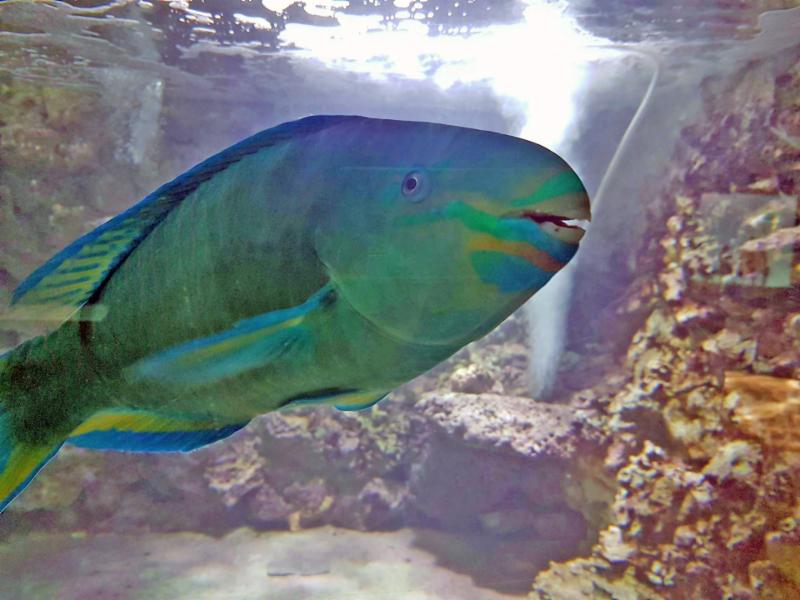
Queen parrotfish in the parrotfish habitat


